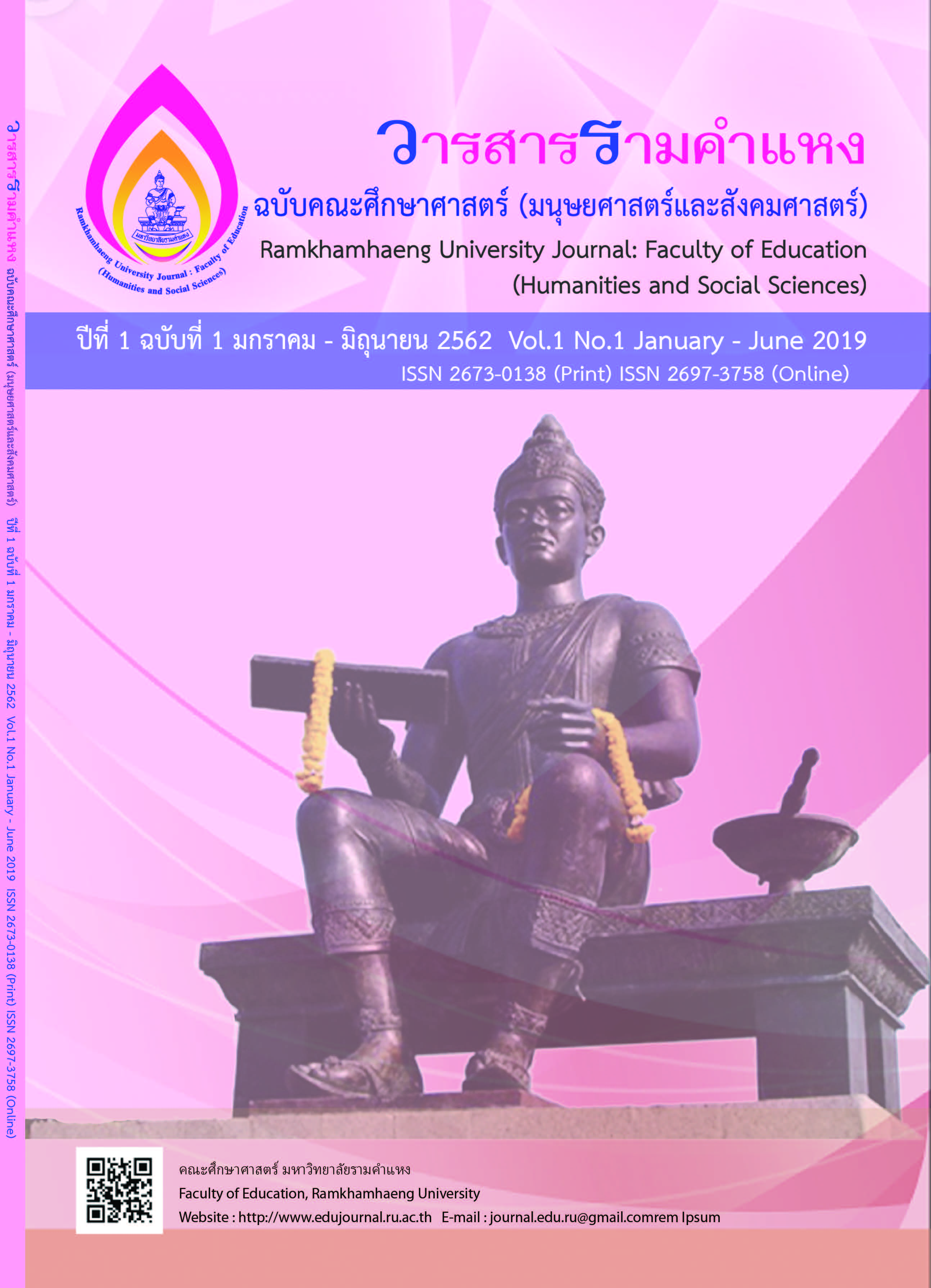Evaluation of Training Program for Making Coconut Milk Jelly and Deletable Imitation Fruits for Career Promotionfollows the Sufficiency Economy of Dusit Thani College and Laemthongpattana Community, Suanluang District, Bangkok, for the Academic Year
Main Article Content
Abstract
This article based on the research paper of Moral Leadership: A Model for Educational Leaders in the 21* Century by Paul M. Quick (2013) and Justice and Care in Feminist Ethics by Watchara Ngamjitjaroen (2548). Furthering the understanding of and studying the literature on moral leadership models is the purpose of this article. A review the literature was synthesizing concepts and offering a new paradigm for educational administrators. Thus, this article has divided into six parts. The first section of this paper is introduction. The second section presents a discussion of school culture, climate and community. The third section introduces the three principles for educational administrators and the fourth section describes a model for principal actions. The fifth section implications for educational administrators are presented. Finally, conclusion. The significance of this article is that educational administrators, who are considered as educational leaders,are required to have moral leadership. It is a form of leadership which is probably appropriate for educational administration in this 21st century. This means the leaders should be able to lead their subordinates in a right direction and chiefly consider benefits of organization and society. The three principles for educational administration consist of 1. Authenticity 2. Balance and 3. Systems Thinking. These principles are key essentials that likely enable educational administration to forge ahead.
Downloads
Article Details

This work is licensed under a Creative Commons Attribution-NonCommercial-NoDerivatives 4.0 International License.
ผู้ส่งบทความ (และคณะผู้วิจัยทุกคน) ตระหนักและปฎิบัติตามจริยธรรมการวิจัยอย่างเคร่งครัด ทั้งนี้บทความ เนื้อหา ข้อมูล ข้อความ ภาพ ตาราง แผนภาพ แผนผัง หรือข้อคิดเห็นใดๆ ที่ปรากฎในบทความ เป็นความคิดเห็นและความรับผิดชอบของผู้ส่งบทความ กองบรรณาธิการไม่จำเป็นต้องเห็นตามเสมอไป และไม่มีส่วนรับผิดชอบใดๆ โดยถือเป็นความรับผิดของของเจ้าของบทความเพียงผู้เดียว
References
พิชิต ฤทธิ์จรูญ (2555). เทคนิคการประเมินโครงการ. กรุงเทพฯ: วิทยาลัยการฝึกหัดครู มหาวิทยาลัยราชภัฏพระนคร.
สมหวัง พิธิยานุวัฒน์. (2559). วิทยาการประเมิน: ศาสตร์แห่งคุณค่า, กรุงเทพฯ: สํานักพิมพ์แห่งจุฬาลงกรณ์มหาวิทยาลัย.
ศันสนีย์ อุตมอ่าง. (2554). การประเมินโครงการการฝึกอบรมเชิงปฏิบัติการการผลิตทองม้วนเพื่อกระตุ้นเศรษฐกิจชุมชน ตามแนวเศรษฐกิจพอเพียง, ค้นเมื่อ 15 กันยายน 2558, จาก https://research.pcru.ac.th/service/pro_ data/files11/54-039.pdf.
จุฬาลงกรณ์มหาวิทยาลัย, คณะครุศาสตร์, ศูนย์ทดสอบและประเมินเพื่อพัฒนาการศึกษาและวิชาชีพ. ค้นเมื่อ 15 กันยายน 2558, จาก http://svr3.edu.chula.ac.th/testcenter/login.php.
ยุวธิดา ม่วงเจริญ และสุรชัย มีชาญ (มกราคม-เมษายน 2558). การประเมินการฝึกอบรมแพทย์ประจําบ้านภาควิชา กุมารเวชศาสตร์, Veridian E-Journal ฉบับภาษาไทย มนุษยศาสตร์ สังคมศาสตร์ และศิลปะ, 8(1), 1059-1074.
ULUM, O. G. (2015). Program valuation through Kirkpatrick's framework. Pacific Business Review International, 8(1), 106-111.
Kirpatrick, D.L. (1998). Evaluating trainng programs: The four levels (...). San Francisco, CA: Bervett-Koehler.


